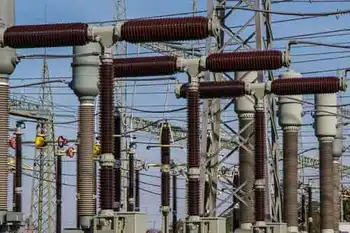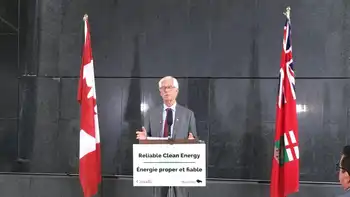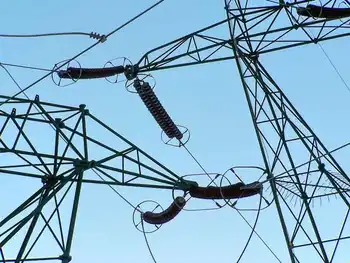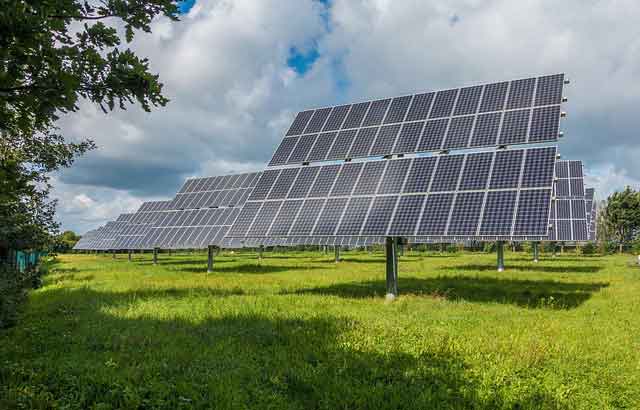German coalition backs electricity subsidy for industries

Electrical Testing & Commissioning of Power Systems
Our customized live online or in‑person group training can be delivered to your staff at your location.

- Live Online
- 12 hours Instructor-led
- Group Training Available
Germany Industrial Electricity Price Subsidy weighs subsidies for energy-intensive industries to bolster competitiveness as Germany shifts to renewables, expands grid capacity, and debates free-market tax cuts versus targeted relief and long-term policies.
Key Points
Policy to subsidize power for energy-intensive industry, preserving competitiveness during the energy transition.
✅ SPD backs 5-7 cents per kWh for 10-15 years
✅ FDP prefers tax cuts and free-market pricing
✅ Scholz urges cheap renewables and grid expansion first
Germany’s three-party coalition is debating whether electricity prices for energy-intensive industries should be subsidised in a market where rolling back European electricity prices can be tougher than it appears, to prevent companies from moving production abroad.
Calls to reduce the electricity bill for big industrial producers are being made by leading politicians, who, like others in Germany, fear the country could lose its position as an industrial powerhouse as it gradually shifts away from fossil fuel-based production, amid historic low energy demand and economic stagnation concerns.
“It is in the interest of all of us that this strong industry, which we undoubtedly have in Germany, is preserved,” Lars Klingbeil, head of Germany’s leading government party SPD (S&D), told Bayrischer Rundfunk on Wednesday.
To achieve this, Klingbeil is advocating a reduced electricity price for the industry of about 5 to 7 cents per Kilowatt hour, which the federal government would subsidise. This should be introduced within the next year and last for about 10 to 15 years, he said.
Under the current support scheme, which was financed as part of the €200 billion “rescue shield” against the energy crisis, energy-intensive industries already pay 13 cents per Kilowatt hour (KWh) for 70% of their previous electricity needs, which is substantially lower than the 30 to 40 cents per KWh that private consumers pay.
“We see that the Americans, for example, are spending $450 billion on the Inflation Reduction Act, and we see what China is doing in terms of economic policy,” Klingbeil said.
“If we find out in 10 years that we have let all the large industrial companies slip away because the investments are not being made here in Germany or Europe, and jobs and prosperity and growth are being lost here, then we will lose as a country,” he added.
However, not everyone in the German coalition favours subsidising electricity prices.
Finance Minister Christian Lindner of the liberal FDP (Renew), for example, has argued against such a step, instead promoting free-market principles and, amid rising household energy costs, reducing taxes on electricity for all.
“Privileging industrial companies would only be feasible at the expense of other electricity consumers and taxpayers, for example, private households or the small trade sector,” Lindner wrote in an op-ed for Handelsblatt on Tuesday.
“Increasing competitiveness for some would mean a loss of competitiveness for others,” he added.
Chancellor Olaf Scholz, himself a member of SPD, was more careful with his words, amid ongoing EU electricity reform debates in Brussels.
Asked about a subsidised electricity price for the industry at a town hall event on Monday, Scholz said he does not “want to make any promises now”.
“First of all, we have to make sure that we have cheap electricity in Germany in the first place,” Scholz said, promoting the expansion of renewable energy such as wind and solar, as local utilities cry for help, as well as more electricity grid infrastructure.
“What we will not be able to do as an economy, even as France’s new electricity pricing scheme advances, is to subsidise everything that takes place in normal economic activity,” Scholz said. “We should not get into the habit of doing that,” he added.











